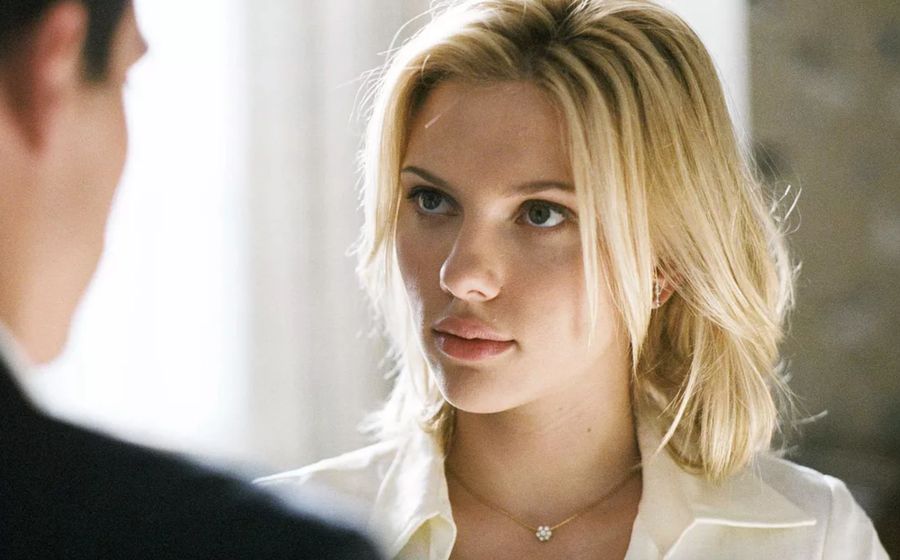Why did Scarlett Johansson almost quit acting?
The surprising reasons behind the Marvel star’s doubts about Hollywood and how she overcame them
(By Carmichael Phillip)

Early Stardom and the Pressure to Perform
Scarlett Johansson began acting professionally at the tender age of eight, with her film debut in North (1994). By the time she starred in Lost in Translation (2003) opposite Bill Murray, she was already being hailed as one of Hollywood’s most talented and enigmatic young stars. But with that acclaim came a tremendous amount of pressure—both from the industry and from within herself.
“Being in the spotlight from such a young age is a strange experience,” Johansson once told The Hollywood Reporter. “You’re constantly adapting, constantly adjusting who you are to please other people.”
As a child star transitioning into adult roles, she faced a set of unique challenges that many actors never experience. Expectations were sky-high, and any misstep was met with public scrutiny. Despite her composure on-screen, Johansson confessed to feeling lost off-camera, sometimes unsure whether acting was still what she truly wanted.
Typecasting and the Struggle for Creative Control
In the mid-2000s, Johansson found herself increasingly frustrated by the kinds of roles being offered to her. Although she was critically acclaimed for her performances in films like Match Point (2005) and The Island (2005), many roles emphasized her physical appearance over her acting talent. The industry’s insistence on branding her as a “sex symbol” left her feeling creatively stifled.
“It’s frustrating when you know you can do more, but people only see you in a certain way,” she said in a candid interview with Vanity Fair. “I wanted to tell stories, not just play the beautiful girl in the background.”
The limitations imposed by typecasting began to wear on her, especially as she tried to transition into more diverse and substantive roles. The lack of creative agency was so disheartening that Johansson began to question whether her place in the film industry still made sense.
Losing Roles and Professional Setbacks
Despite her fame and reputation, Johansson experienced career setbacks that compounded her doubts. She lost out on several major roles during a critical period in her career, including the lead in Gravity (2013), which ultimately went to Sandra Bullock.
Speaking with Howard Stern, Johansson revealed how discouraging it was: “You start to internalize that rejection. You wonder, ‘Am I good enough?’ And it’s not a good place to be mentally when you’re constantly questioning your worth.”
These losses didn’t just affect her confidence—they also created a sense of instability in her career trajectory. Each missed opportunity added weight to the idea that she might not have the longevity in Hollywood that she’d hoped for.
The Toll of the Marvel Machine
While her role as Natasha Romanoff/Black Widow in the Marvel Cinematic Universe brought Johansson international fame and fortune, it came with its own burdens. Starring in one of the biggest film franchises of all time meant tight schedules, strict contracts, and limited freedom to pursue other creative projects.
“There was a point where I felt like I was stuck,” Johansson told The Guardian. “The Marvel films were incredible opportunities, but I missed doing the kind of personal, character-driven work that made me fall in love with acting in the first place.”
Although she appreciated the scale and impact of the MCU, Johansson hinted that the physical and emotional toll was immense. Balancing blockbuster commitments with a desire for artistic fulfillment created a deep internal conflict.
The Impact of Motherhood and Changing Priorities
Another factor that almost pushed Johansson out of acting was motherhood. In 2014, she gave birth to her daughter, Rose Dorothy Dauriac, and later welcomed a son, Cosmo, with husband Colin Jost. With the responsibilities of parenting came a major shift in her personal and professional priorities.
“Becoming a mother made me question everything,” Johansson shared in an interview with USA Today. “Suddenly, the things I thought mattered didn’t seem so important. I wondered if continuing to act was the right choice—not just for me, but for my family.”
Being a present parent while maintaining a grueling filming schedule often felt impossible. For a time, she seriously considered stepping away from Hollywood to focus on raising her children away from the limelight.
A Breakthrough with “Marriage Story”
Johansson’s career took a revitalizing turn with Marriage Story (2019), a role that allowed her to tap into a raw emotional core rarely seen in blockbuster films. Her performance earned her an Academy Award nomination and critical praise that reaffirmed her belief in acting as an art form.
“It reminded me why I became an actor in the first place,” she told NPR. “That film saved me. It was one of the hardest things I’ve ever done, but it gave me a sense of purpose I hadn’t felt in years.”
The intimate portrayal of a woman going through a painful divorce gave Johansson the opportunity to channel her own personal experiences, making the performance feel cathartic and deeply personal.
Standing Up for Herself: The Disney Lawsuit
In 2021, Johansson made headlines for suing Disney over the release of Black Widow, which debuted simultaneously in theaters and on Disney+. She alleged that the move breached her contract and cost her millions in potential bonuses. While the lawsuit was settled privately, the decision to take on a major studio showed a new level of assertiveness.
“It was about fairness and integrity,” Johansson told The Hollywood Reporter. “I had to stand up not just for myself, but for every artist who deserves to be treated with respect.”
Though the ordeal was emotionally and professionally taxing, it marked a turning point in Johansson’s career. It showed that she was no longer willing to tolerate the inequities of the industry—even if that meant risking her future in it.
Rediscovering Passion Through Producing
One of the ways Johansson rekindled her love for the industry was by stepping behind the camera. She launched her own production company and began focusing on projects that aligned with her values and artistic vision.
“I realized I didn’t have to wait for someone to give me permission to tell the stories I cared about,” Johansson explained. “Producing has been liberating—it’s given me control over my career in a way I’ve never had before.”
This transition allowed her to blend her acting expertise with her desire to shape narratives from the ground up, further solidifying her renewed commitment to the entertainment world.
The Importance of Mental Health and Self-Care
Johansson has become increasingly vocal about the importance of mental health, especially in an industry known for its intense pressure. She’s advocated for therapy, mindfulness, and boundaries—tools she now credits with helping her regain stability.
“I used to push myself to the edge, thinking that’s what it took to succeed,” she said during an interview with Elle. “But taking care of myself mentally and emotionally has been the key to staying in this business.”
Her openness about these struggles has resonated with fans and fellow actors alike, making her a role model for prioritizing wellness in an often-demanding field.
A New Era for Scarlett Johansson
Today, Scarlett Johansson stands at a crossroads—not as someone on the verge of quitting, but as someone who has redefined her place in Hollywood on her own terms. She has moved past being typecast, fought for her rights, embraced her family life, and emerged with a clearer vision of who she is as both an artist and a person.
When asked by The New York Times if she ever truly thought about walking away from acting for good, Johansson responded thoughtfully: “I did. But sometimes stepping back is exactly what you need to remember why you started in the first place.”
Rather than quitting, she chose to evolve. In doing so, she has not only preserved her career but reinvigorated it—proving that the strongest performances often come after we’ve questioned our ability to perform at all.




